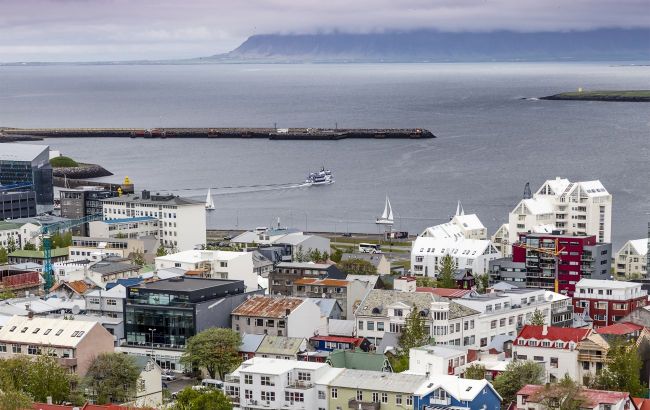Iceland weighs resuming EU membership talks, boosting defense amid Trump's policies - WSJ
 Photo: Icelanders debate whether they should strengthen efforts to defend their country (Getty Images)
Photo: Icelanders debate whether they should strengthen efforts to defend their country (Getty Images)
Iceland considers strengthening its defense capabilities and resuming EU accession talks due to actions by the new US administration, reports The Wall Street Journal.
What is known about Iceland and its importance
Iceland, one of NATO's founding members, does not have a standing military and is not part of the EU.
For decades, its residents lived in peaceful isolation. Its location in icy waters between Greenland and Norway provided NATO with a base during the Cold War to monitor Soviet naval traffic.
Today, the island, located south of the Arctic Circle, faces increasing risks due to heightened activity in the far north. Climate change is opening once impassable sea routes. Meanwhile, Iceland is being "tugged by growing antagonism" between US President Donald Trump's administration and Europe.
Although Iceland is greener and less icy than Greenland and lacks the mineral wealth of Denmark's territory, it has long positioned itself as the last line of defense for the US and NATO. This is something, according to administration officials, that did not occur in Greenland, whose defense is controlled by Denmark.
After tensions with Russia rose in 2014, US officials informed their Icelandic counterparts that they wanted to resume operations at the Keflavik airbase outside Reykjavik. Iceland quickly agreed and began investing in military infrastructure around the island.
Welcoming the US and other NATO allies, the country with a population smaller than Wyoming maintains its unique status. Four other Northern European countries — all of which share land borders with Russia or are separated from it by the Baltic Sea — are ramping up defense, while Iceland is charting a different course.
American anti-submarine warfare aircraft now regularly patrol the surrounding seas from Keflavik in southwestern Iceland. European NATO fighters take turns flying from the base to patrol the skies between Iceland and Russia. Meanwhile, submarines and military ships from the alliance dock in Icelandic ports.
The US considers both Iceland and Greenland crucial for internal security. Greenland lies on the path that Russian nuclear warheads, aimed at America, may travel through the sky, making it vital for missile detection and defense. Russian submarines, meanwhile, must pass near Iceland, which NATO calls the Greenland-Iceland-UK gap.
"Iceland is a high point along the Mid-Atlantic Ridge, an enormous and largely undersea mountain range created by the continental collision. Russian subs, which have recently ventured closer to America, are forced to rise nearer the surface as they cross the ridge, making detection easier," writes The Wall Street Journal.
Strengthening defense capabilities and EU accession
Icelanders are currently debating whether to actively defend their country and whether to resume EU accession talks, which were halted in 2013. Prime Minister Kristrún Frostadóttir plans to hold a referendum on the matter by 2027, once her government addresses what it considers the most urgent issues. However, some Icelanders believe that Trump’s policies are pushing them toward earlier EU membership.
One pressing issue is a review of the national defense strategy, which is currently under discussion. In an interview, the prime minister stated that public debates on this issue are important because "military activity in Iceland has sometimes been overlooked" and "It’s been uncomfortable to talk about."
Iceland, like other Nordic countries, has long sought to keep the Arctic free of militarization. But since this is no longer possible, Icelanders are evaluating what an expanded defense might look like.
"There has never been public support for a military in Iceland, and I don’t think there will be in the foreseeable future. That doesn’t mean we can’t have active defenses, and that we can’t have active alliances, and defenses are important," said Frostadóttir, who took office in late December.
The Wall Street Journal also writes that the formation of the debate is driven by Iceland’s growing wealth, supported by the island’s geology, such as geothermal energy and volcanic activity, which attracts tourists. Cheap green electricity and openness to innovation have made Iceland a base for industries ranging from aluminum smelting to digital services.

